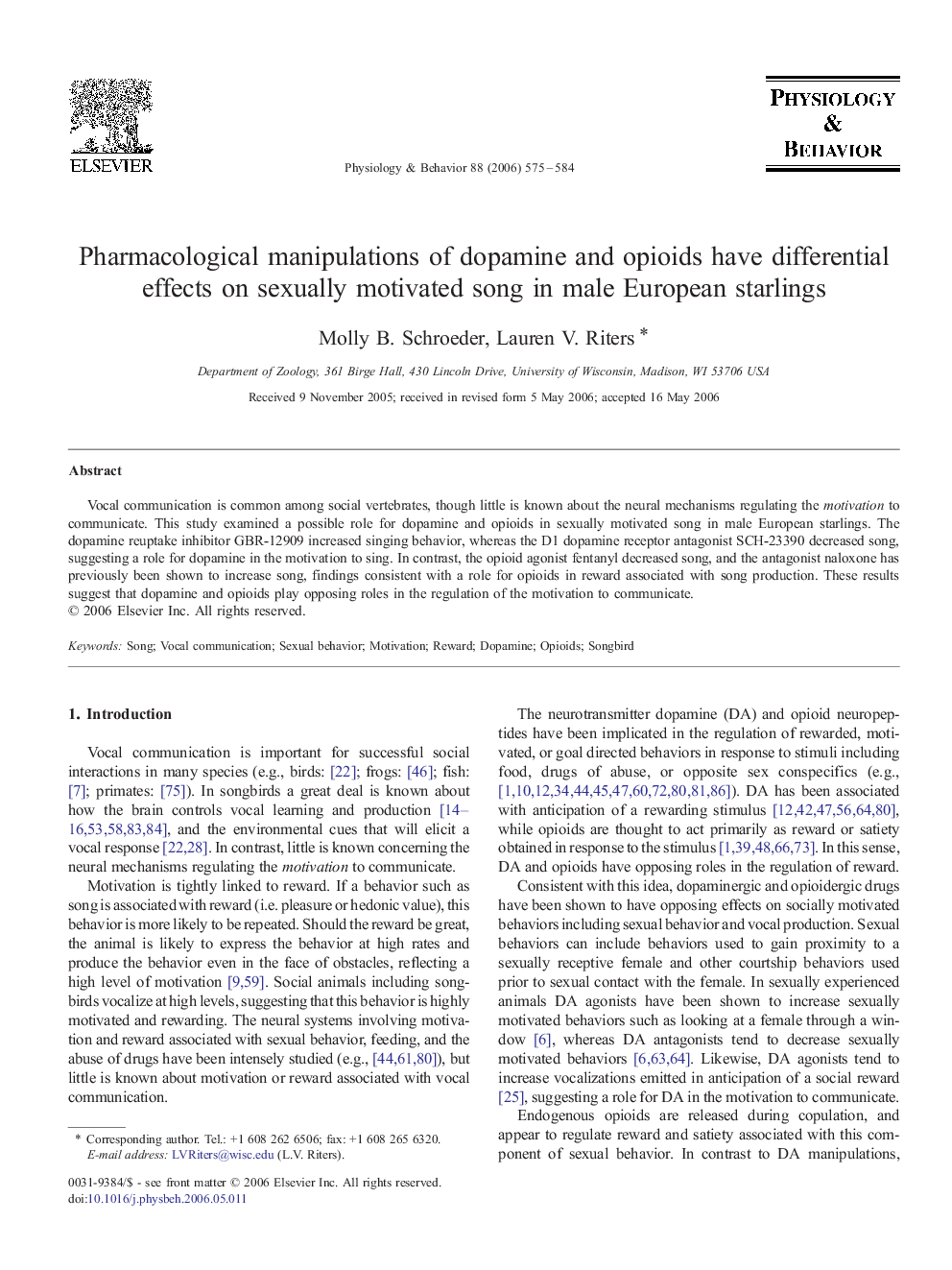| Article ID | Journal | Published Year | Pages | File Type |
|---|---|---|---|---|
| 2846261 | Physiology & Behavior | 2006 | 10 Pages |
Vocal communication is common among social vertebrates, though little is known about the neural mechanisms regulating the motivation to communicate. This study examined a possible role for dopamine and opioids in sexually motivated song in male European starlings. The dopamine reuptake inhibitor GBR-12909 increased singing behavior, whereas the D1 dopamine receptor antagonist SCH-23390 decreased song, suggesting a role for dopamine in the motivation to sing. In contrast, the opioid agonist fentanyl decreased song, and the antagonist naloxone has previously been shown to increase song, findings consistent with a role for opioids in reward associated with song production. These results suggest that dopamine and opioids play opposing roles in the regulation of the motivation to communicate.
